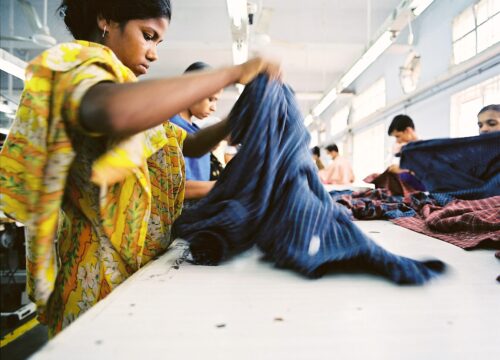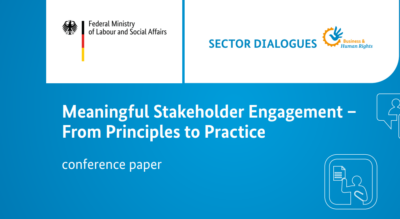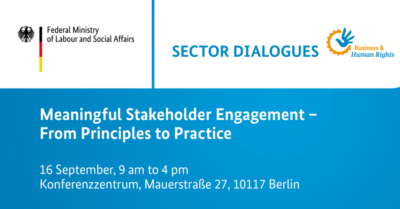Until now, the LkSG applied to German companies with 3000 or more employees. As of January 1, 2024, companies with at least 1000 employees are starting to put the regulations into practice, too. To navigate the challenges in implementation, the website of the initiative CSR-in-Germany, commissioned by the Federal Ministry of Labour and Social Affairs (BMAS), provides helpful information and informs about support services.
It is evident: MSPs can support learning processes regarding the implementation of the LkSG. Accordingly, MSPs and sector dialogues are recommended, among other things, in the Federal Office for Economic Affairs and Export Control’s (BAFA) guide on risk analysis (German). Companies are aware of the power of MSPs, too. One year after the introduction of the LkSG, some of them share how collaboration in MSPs has supported them in transforming law into action.
The energy provider Vattenfall has joined the MSP Energy Sector Dialogue (Branchendialoge Energiewirtschaft). Maxi Kammbach, Sustainability Analyst at Vattenfall, cites a lack of transparency, particularly in the deeper value chain, as a significant challenge. By involving stakeholders from various areas, the Sector Dialogue provides a platform for the exchange of knowledge and experiences, offering significant added value. Especially at the beginning of the value chain, “NGOs can make a substantial contribution through their local contacts and reports”, according to Kammbach.
Collaboration in MSPs is also a crucial approach for addressing systemic issues in the textile supply chain. The MSP Fair Wear Foundation (FWF) advocates for the improvement of working conditions in the textile supply chain. Among others, hessnatur and adidas are part of the Foundation. Kristin Heckmann-Kipouros, Sustainability Manager at hessnatur, emphasizes the benefits of exchanging information within the MSP to fulfill their due diligence. For example, linguistic and cultural barriers can be overcome with the help of FWF, because it operates with local teams in many countries. According to Frank Henke, Senior Vice President Sustainability Policy & Engagement at adidas, improving working and environmental conditions can only be achieved through good collaboration. Without a strong presence in procurement countries, it is challenging to accurately assess risks. Cooperation in MSPs helps to increase leverage and to consolidate strategies for action.
With the upcoming EU Supply Chains Directive, the EU is making strides towards environmental and human rights protection as well. While the European Council and Parliament have reached a provisional agreement on the Corporate Sustainability Due Diligence Directive (CSDDD), companies stand to gain valuable insights from their predecessors’ experiences with the LkSG. They may also unlock the potential of collaboration in MSPs, fostering positive change and sustainable practices.
A complete list of the CSR interviews (German) can be found here.



